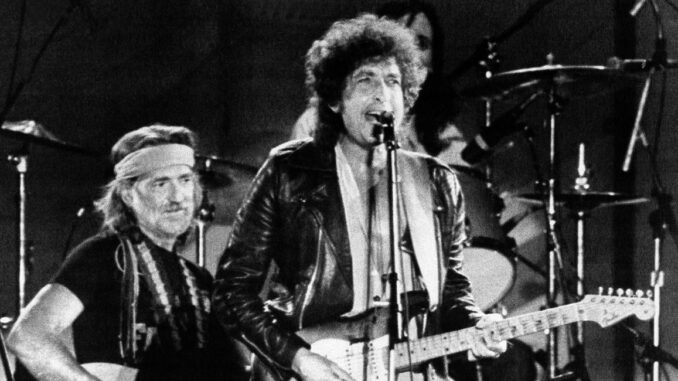
Sept. 19
1796: President George Washington’s farewell address was published, in which he wrote, “Observe good faith and justice toward all nations. Cultivate peace and harmony with all.”
1881: The 20th president of the United States, James A. Garfield, died 21/2 months after being shot by Charles Guiteau.
1955: President Juan Peron of Argentina was ousted after a revolt by the army and navy.
1985: The Mexico City area was struck by a devastating earthquake that killed at least 9,500 people.
Sept. 20
1519: Portuguese explorer Ferdinand Magellan and his crew set out from Spain on five ships to find a western passage to the Spice Islands.
1946: The first Cannes Film Festival opened in France.
1973: In their so-called “Battle of the Sexes,” tennis star Billie Jean King defeated Bobby Riggs in straight sets.
Sept. 21
1922: President Warren Harding signed the Lodge-Fish Resolution, a Congressional resolution endorsing the creation of a Jewish state in Palestine.
1937: “The Hobbit,” by J.R.R. Tolkien, was first published.
1981: The Senate unanimously confirmed the nomination of Sandra Day O’Connor to become the first female justice on the Supreme Court.
1989: Hurricane Hugo crashed into South Carolina; the storm was blamed for 56 deaths in the Caribbean and 29 in the United States.
Sept. 22
1862: President Abraham Lincoln issued the preliminary Emancipation Proclamation, declaring that all slaves in rebel states should be free as of Jan. 1, 1863, if the states did not end the fighting and rejoin the union.
1911: Pitcher Cy Young, 44, gained his 511th and final career victory as he hurled a 1-0 shutout for the Boston Rustlers against the Pittsburgh Pirates at Forbes Field.
1949: The Soviet Union exploded its first atomic bomb.
1975: Sara Jane Moore attempted to shoot President Gerald R. Ford.
1994: The situation comedy “Friends” debuted on NBC-TV.
1985: Rock and country music artists participated in the first “Farm Aid,” a concert staged in Champaign, Illinois, to help the nation’s farmers.
Sept. 23
1806: The Lewis and Clark expedition returned to St. Louis more than two years after setting out for the Pacific Northwest.
1952: Sen. Richard M. Nixon, R-Calif., salvaged his vice-presidential nomination by appearing on television from Los Angeles to refute allegations of improper campaign fundraising in what became known as the “Checkers” speech for its reference to his family’s cocker spaniel.
Sept. 24
1789: President George Washington signed a Judiciary Act establishing America’s federal court system and creating the attorney general post.
1968: The TV news magazine “60 Minutes” premiered on CBS.
Sept. 25
1513: Spanish explorer Vasco Nunez de Balboa crossed the Isthmus of Panama and sighted the Pacific Ocean.
1789: The first United States Congress adopted 12 amendments to the Constitution and sent them to the states for ratification. (Ten of the amendments became the Bill of Rights.)
1956: The first trans-Atlantic telephone cable officially entered service with a three-way ceremonial call between New York, Ottawa and London.
